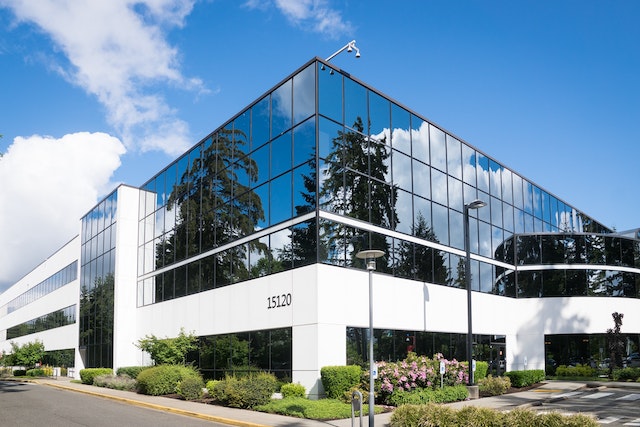The amount of money your business spends can affect your profits. If you spend too much money, you can even end up running your business on a loss.
There are so many different expenses in business that you need to keep track of. Below are some of the biggest expenses that businesses overspend on – and how you can spend less in these areas.
Marketing
Marketing is essential for bringing in customers. There are lots of marketing strategies that you can use, but not all of them will be good for your business. This is one of the biggest ways companies overspend: carrying out the wrong types of marketing strategies.
It’s important that you firstly know your audience so you can cater your marketing to them. There’s no such thing as one-size-fits-all marketing: a wealthy elderly consumer is not going to fall for the same tactics as a low-income teen consumer. Market research can help you to understand your audience and the types of marketing tactics that appeal to them.
It’s also important to monitor the results of your marketing. There’s no point continuing to run the same advertising campaign over and over again if it’s not working. Record metrics so that you can see how effective it is. With online marketing like social media and PPC advertising, you can usually use analytics to see if your marketing is working. Another way to see which marketing tactics are working is to simply ask every customer how they discovered you.
While it can be worth paying professionals for marketing services like video production, SEO and app development, there are many marketing strategies that you can carry out cheaply yourself to save money if you’re a small business. This includes social media marketing, email marketing, handing out flyers, hosting events and even building your own website using a DIY website builder. Make sure that you’re also constantly networking – simply talking to new people is a great way to build customers. This guide features a few low budget marketing ideas that could be worth trying.
Recruitment
Recruitment costs usually only become a problem in companies with a high employee turnover. The cost of advertising jobs, onboarding and training can start to add up if you’re doing it frequently.
Some industries naturally have a high employee turnover like retail and catering. However, you can reduce this turnover by a) looking after your staff and b) taking the time to truly hire the best talent. Try to nurture your new employees and regularly check in on them. Similarly, reward your older employees with privileges and bonuses. Meanwhile, when looking for new recruits, try to compare as many applicants as you can so that you can find the best employee, instead of hiring the first person you can find to fill the position.
Recruitment agencies can be useful for some companies, but in many cases can just end up being an extra expense. Creating your own job adverts and doing your own interviews is the better option if you’re a small company. Make sure that your job adverts make each role seem attractive – if the advert makes you or your job seem unpleasant, you’ll end up scaring away some of the most qualified applicants who have the freedom to pick and choose, while only attracting those that are desperate.
Equipment
Equipment can often be a big cost for companies. This could include anything from computers to construction machinery.
Most businesses buy equipment on finance. When doing this, always shop around for loans and finance deals so that you’re not overspending on interest fees.
Sometimes it’s more economical to hire equipment rather than buying it. This is usually the case with equipment for one-off jobs such as specialist construction machinery and car repair tools.
Used equipment is always cheaper than brand new equipment, however, you should avoid buying equipment in poor condition as you’ll likely spend more money in the long run on repairs and replacements. Machines like computers are often better to buy brand new – shop around for discounts when buying these machines.
Supplies
You should also consider your company’s supplies. This could include resources like paper or cleaning chemicals, or materials and parts for construction or repairs jobs.
When saving money on supplies, take your time to shop around for suppliers. Consider specialist distributors when looking for specialist parts like galvanised tube and fittings rather than just using general suppliers. With certain materials that require price quotes, you may be able to haggle down prices by asking for a price match.
When buying materials and ingredients in bulk you can often take advantage of bulk discounts, however, you need to make sure that you’ll use all these materials and ingredients before they expire. Some companies make the mistake of bulk buying things like printer ink not realising that they have an expiry date.
Energy bills
Energy costs are going up and many businesses are starting to feel the sting. While you can sometimes save money by switching energy supplier, often the most effective way to save money is to work on reducing your energy usage.
When choosing machinery for your business, opt for energy-efficient machines. Things like office HVAC can make a big impact on your energy bills – if you’ve got an old HVAC system, consider whether it’s worth investing in a newer more energy-efficient option. You should also replace any traditional incandescent bulbs with energy-saving LEDs as lighting can often make up a big part of energy usage.
You could also save money by considering your energy source. If you plan to stay at the same business premises for years to come, consider whether it’s worth investing in solar panels. You could start generating all your own energy so that you don’t have to pay an energy bill again. Of course, solar panels are expensive and often have to be bought on finance – compare solar panel installation costs to find the best deal.
Internet
Internet bills may only seem like a small cost, but they can add up over time. A lot of companies take out an internet plan and keep renewing it without ever shopping around. However, it’s worth always taking the time to look around, as there could be cheaper deals for the same level of internet elsewhere.
Make sure to match your internet plan to your demands. High bandwidth internet plans are only necessary if you have lots of workers accessing the internet at the same time. You should also think about what internet activity you’re engaging in. A good internet speed is important if you’re constantly downloading data, making video calls or using cloud-based software – but if you only use the internet for general business admin, you may not need it.
Cloud storage
Many businesses pay for cloud storage in order to securely and remotely store all their data. Like an internet plan, it’s easy to take out a cloud storage plan and just keep automatically renewing it without checking what deals are out there. By taking the time to look around, you could find that there are much better deals.
Make sure your cloud storage plan is right for your needs. If you’ve still got lots of space and you’re unlikely to ever use it all, consider opting for a cheaper reduced storage space plan. It’s worth also regularly clearing out files you don’t need.
Insurance
Many businesses have to take out insurance schemes like employer’s liability or commercial vehicle insurance. Insurance rates are often dependent on how much of a risk your business is. For example, a construction business will usually have to pay higher employer liability rates than an office-based company as there’s more risk of employees getting injured.
Your insurance is likely to go up if you have to make a claim, so invest money into avoiding claims from occurring. When it comes to commercial vehicle insurance claims, this could simply involve hiring good drivers, buying safe vehicles and making sure drivers are not tired or intoxicated.
If you need to take out multiple insurance schemes, you can usually save money with an insurance bundle. This is when a single insurer offers multiple different policies at a discounted rate. This post offers a few more tips for saving money on business insurance.
Software
A lot of companies overspend on software. This includes paying subscriptions for software that is barely ever used and taking out pricy software plans beyond one’s needs.
At the end of each year, it’s worth considering how much you’ve used each software application so that you can cancel subscriptions that you don’t really use. Make sure that your software plan is also not too advanced for your needs. An application that supports 20 employees at the same time is all well and good if you’ve got 20 employees, but if you’ve only got 5 employees and have no plans of expanding, you could find that you can save money by switching to a more basic plan.
Location
The location of your business premises can have a huge impact on your expenses. Moving location can sometimes have the biggest impact on reducing business costs and could be worth considering if you’re currently renting an office, warehouse or store in an expensive area. Things like rent, business rates and energy bills could be greatly reduced.
Cheaper areas do have their downsides such as not attracting as making your business harder to find or increasing commute times for employees, so bear this in mind before moving.




